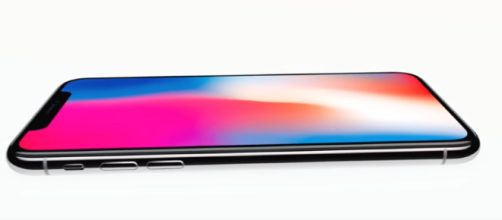Apple recently launched its luxury iPhone X that claims to ‘revolutionize’ the smartphone industry. For all its stunning display, bezel-less design, gesture-based iOS, and wireless charging, the phone still lacks on the safety front, and you will be surprised that it can be compromised in so many different ways.
The company has released various updates since its release to cover up the inherent deficiencies of iOS 11. But even the latest iOS 11.1, which was released a week ago, and is the seventh software upgrade since its release, is still not perfect.
Getting into someone’s iPhone X is as easy as using a third-party iPhone spyware app like Xnspy.com. Maybe, it’s time for the iPhone protagonists to step down, who believe iOS to be the safest operating system for a smartphone!
The bitter reality is that all this new tech is irrevocably leading us to a whole new lot of security concerns. This article discusses different ways your new iPhone X is vulnerable to security risks and how you are exposed to spying and monitoring.
The new face ID could be a tool for surveillance
Face ID is being touted as the hallmark of iPhone X and a huge gamble for Apple since it completely replaces Touch ID.
But unsurprisingly, it has raised major anxiety. Consumers are already questioning whether Face ID could be spoofed.
If yes, then this new technology can create another form of surveillance. The data from the Face ID scans can be used to identify individuals based on face profiles.
While Facebook has a powerful Facial Recognition System, it doesn’t maintain the operating systems that control the cameras on phones, tablets, and laptops that stare at us every day.
Apple’s new system changes that. For the first time, a company will have a unified single facial recognition system.
Until now, text and monitoring apps for iPhone have been the focus of hackers, but Apple’s Face ID could change that. By generating millions of face prints while simultaneously controlling the cameras that can scan and identify them, Apple might soon face a government order to turn its new unlocking system into a tool of mass surveillance.
Beware of the third-party apps on your iPhone X
The apps that you download from the App Store seek access to all sorts of your private information, like your photos, microphone, contacts, etc. And there have been several instances that these apps have been in the news for the security breach of consumer’s personal data. Recently, the famous ride-sharing app, Uber, landed in hot water over insecure data practices, according to Courthouse News. Since then, there have been calls for banning the app in different cities of the world.
Even Facebook could be governing your everyday choices online. How? Any page that you visit or like on Facebook is tracked for advertising purposes. There are even claims that Facebook uses voice beacons.
This explains why you see advertisements for things you have been talking about. Facebook accesses your microphone by asking for permission. This might include recording a video and sending relevant ads your way using AI.
But there is a way out if you want. You can opt out of this in the app permissions section. But you cannot do anything for the facial recognition technology of Facebook except for not uploading pictures on Facebook anymore.
All these apps are available in the App Store but you do get to control, to some extent, what these apps can access on your phone. An iPhone spyware app that is not even available in the App Store can be used in the new iPhone X without you even knowing.
These apps, such as Xnspy, claim to spoof calls, iMessages, instant messenger chats, location information, and even your surroundings in the newly built iPhone X, proving to be another dent in the security of new iPhone X.
So what can you do?
There are only a few ways you can protect yourself and your new device from giving away your information.
- Disable any app permissions for microphone and camera in the settings of your iPhone X.
- Turn off location services when you do not need them.
- Try not giving unnecessary permissions to apps for accessing your photos, videos, microphone, etc.
- If you're still worried, you can always get your hands on a vintage Nokia.


